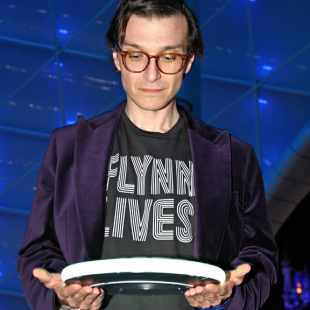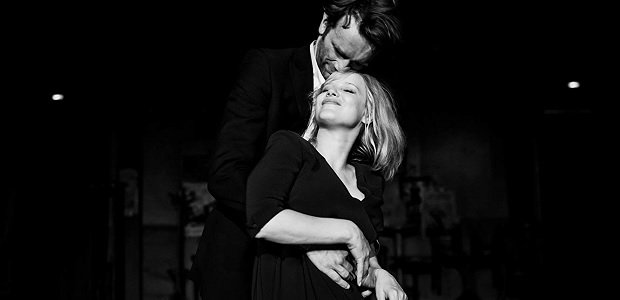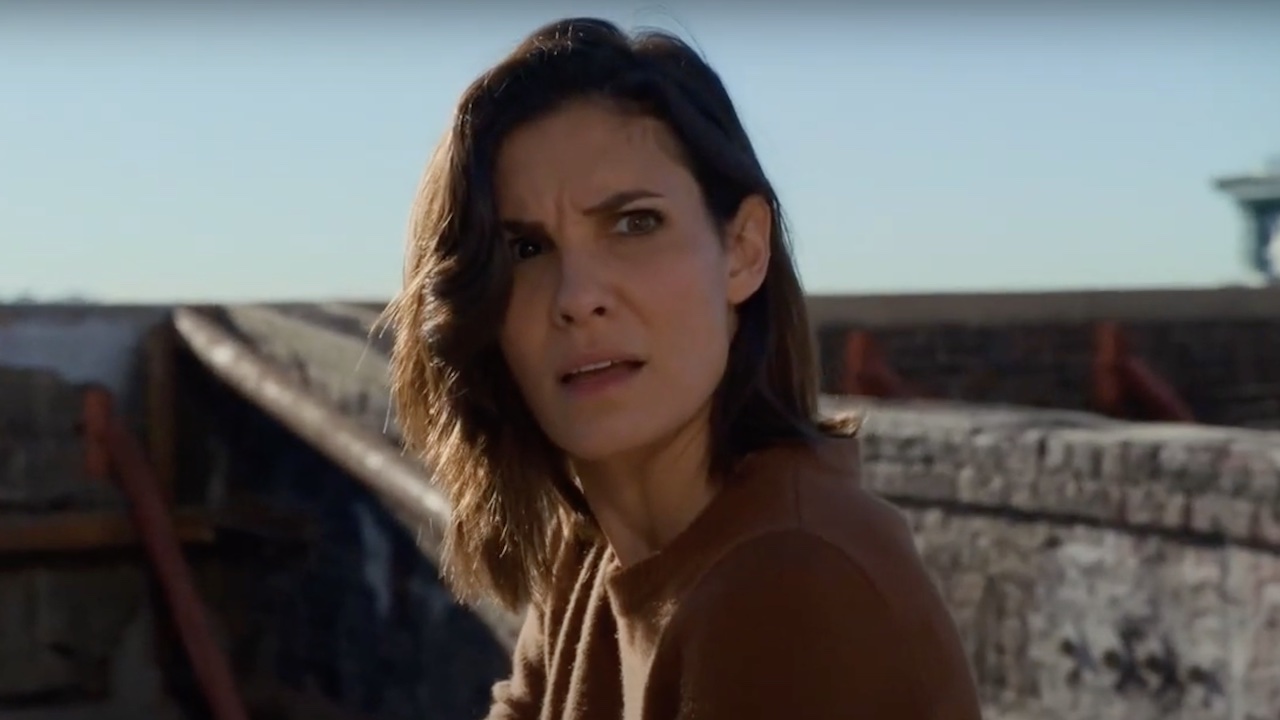Love stories are typically pretty straight forward. Person A meets Person B, and there's a connection. That connection is something the audience is supposed to root for, and ultimately want to prevail. By time the movie ends, that relationship usually wins out, and everyone can breathe a sigh of relief that the lovers are in love. Don't expect that sort of cut-and-dried sort of love story in director Pawel Pawlikowski's Cold War, as it is an atypical love story that explores a long term romance, with some seriously film noir tendencies.
Cold War tells the tale of a romance that spans a decade, ebbing and flowing between good times and bad in the relationship between Wiktor (Tomasz Kot) and Zuzanna (Joanna Kulig.) The pair meet as instructor and pupil in a musical program intended to maintain Polish heritage through folk art in 1949. As the years forge on, they continue to waltz in and out of each others lives, with their fortunes rising and falling each time. As the world starts to change, and Communism rises as a barrier between the two, their relationship will be tested, along with their own personal fortitude.
The most lasting impression Cold War has on its audience is that it's a film that tells its conventional story in an unconventional manner. Rather than throwing Wiktor and Zuzanna into a straightforward narrative, the story of Pawlikowski's dour, and in all honesty toxic, romance is told by, in essence, snapshots in time. We never linger with these characters too long, as time and locales shift when the story needs them to.
So instead of a story that feels like a simple "A to B" plot, we're given a movie that lets us fill in the blanks in-between the moments we do see. All the information is laid out for the audience to interpret as Wiktor and Zuzanna keep coming back to each other over time. This manner of storytelling inspires the viewer to really discuss what they've seen once Cold War has wrapped, and it definitely feels like the sort of movie that will reward devotees with repeated viewings.
What's also rewarding is the lush landscape of Cold War's visual and sonic landscapes. For a film that has music embedded into its DNA, it seduces both with some of the lushest black and white photography seen on screen in some time, and a musical accompaniment to die for. Polish folk music, American rock and roll, and French jazz all mix and mingle in this film, and if that sounds appealing to you, then Cold War will definitely warm your heart.
Especially since the film's characters and story evolve and change much like a pivotal song at the center of the film. Much like the song Zuzanna sings throughout the film, Cold War's romance translates differently each time it's revisited. As the settings and language change throughout time, so does their story, to the point where you can recognize how it started, but can't help but feel bad for how it all turns out.
Of course, any good love story has to have a pair that the audience can truly engage with, and it's absolutely safe to say that Cold War delivers on that front as well. Tomasz Kot's Wiktor bounces through the story, truly loving Joanna Kulig's Zuzanna, despite the fact that she's not always the best object of affection.
Meanwhile, Kulig's female lead embodies a mixture of desperation and icy detachment, doing whatever she has to do to survive. Every moment of sweetness she gives Wiktor, we can't help but question if she means it, or if it's just another whim. As the film goes on, the line doesn't get any clearer, but the result is constantly compelling nonetheless.
Cold War is a film that doesn't belong in the modern era of filmmaking, and it's hard to be convinced that this isn't some lost romance made in the time of the French New Wave. It is totally committed to the time period its story is set in, and it creates a rare film that feels like stepping back in time as you watch it unfold.
Pawel Pawlikowski is in love with his characters, his story, and the world he's built in Cold War, and it shows in every frame. It's a beautiful story about people who can get really ugly, needy, or dismissive when they have to, and while the validity of Wiktor and Zuzanna's romance may be the film's biggest question of all, there's no doubt that falling in love with this film is absolutely right.

Mike Reyes is the Senior Movie Contributor at CinemaBlend, though that title’s more of a guideline really. Passionate about entertainment since grade school, the movies have always held a special place in his life, which explains his current occupation. Mike graduated from Drew University with a Bachelor’s Degree in Political Science, but swore off of running for public office a long time ago. Mike's expertise ranges from James Bond to everything Alita, making for a brilliantly eclectic resume. He fights for the user.











